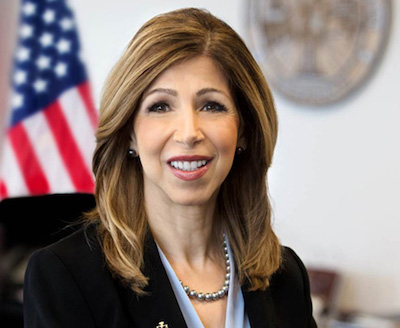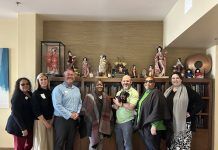The coronavirus and U.S. Census are making answering your phone fashionable again. But just because you know you might be receiving a call from a Census worker or a COVID-19 contract tracer, doesn’t mean you shouldn’t vet your calls. There are always scammers looking to take financial advantage of people under any circumstances and today’s uncertain climate is no different.
Being counted in the U.S. Census and being informed if you’ve been in contact with someone who has tested positive for the coronavirus are both important calls to take. Here are some tips on distinguishing legitimate calls from scams.
• The most common tactic used by scam callers is to pressure the caller and make them feel panicked. A contact tracer or Census worker will never make you feel pressured or hurried. If a caller is pressuring you to make a quick decision or to reveal personal information, hang up. It is likely a scam call.
• If you ask the caller for identifying information and they refuse to answer, that’s a red flag. A contact tracer or Census worker will never refuse to answer a question.
• Likewise, these callers will never ask for a social security number or bank account information.
• If a caller threatens you with jail time or a fine, they are a scammer.
• If the call is a pre-recorded message, hang up. Census workers and contact tracers will not use pre-recorded messages when contacting you.
• A contact tracer or Census worker will know your name and will ask for you, so no need to volunteer personal information.
• When in doubt, hang up.
Not all unknown calls are scams. Census workers and contact tracers might be calling, too. Here are ways to identify real calls from scam calls:
• Census workers will quickly identify themselves and, if attempting to conduct a survey, will just as quickly name the survey.
• If the Census worker leaves a message, they will also provide the case identification number associated with your survey.
• Census workers will already have basic identifying information about you.
• If you would like to independently verify the Census worker calling you, you can ask for their name and look them up on the Census Bureau Staff Search.
• Most Census workers attempting to survey you will originate from three numbers.
• (812) 218-3144, Jeffersonville Contact Center
• (520) 798-4152, Tucson Contact Center
• 1-800-923-8282, Customer Service Center
• A legitimate contact tracer will identify themselves as part of San Diego County Public Health Department and will use their first name.
• Contact tracers will notify you if you have potentially been exposed to COVID-19.
• Contact tracers will ask you if you have any specific symptoms of COVID-19.
• Contact tracers will answer your questions and provide information on where to get tested.
• Contact tracers will not ask for money, banking information, social security numbers or insurance identifying information.
• If a contact tracer ever asks for sensitive personal information or for money, hang up and report them to your local health department.
• Contact tracers may send an email after calling. Email will include fact sheets about COVID-19.
• A text message may be sent by a contract tracer if they are unable to reach you by voice phone call. The text will say:
You can report COVID-19 scams through the FDA’s Health Fraud Program.
As your District Attorney, I’m committed to increasing communication and accessibility between the DA’s Office and the public. I hope these consumer and public safety tips have been helpful.













